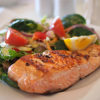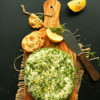March 18, 2021 | 5 Nissan 5781 Dear All, The whole world we live in, right now, is “both/and” rather than “either/or.” Everything happens simultaneously. Everything and its opposite is true. Things overlap and repeat, fold in upon themselves. I feel this strongly in relation to the economy, as well as so much else. It is good that the federal government has learned some of the (negative) lessons of 2008, and before that of Herbert Hoover. Paul Krugman has argued repeatedly that it’s wrong to fear inflation in a deflationary environment. If the government were not printing money – had not printed money this last year – then millions and perhaps tens of millions would be out of work, perhaps homeless, perhaps hungry. And it is always those who already have the least who suffer the most. So: printing money is good. And the American Rescue Plan is especially commendable because, for the first time since perhaps Lyndon Johnson, there’s a (somewhat) focused attempt to get the most help to those who are poorest. This is what the Torah enjoins. And yet one other consequence of this is that all sorts of bubbles are developing. From GameStop to the […]
Topic: Shavuot

Next Thursday night — and #soundthecall on April 22nd
Friday, April 3, 2020 | 9th Nissan 5780 Dear All, Seder is one night – in Israel. In chutz la’aretz – ie, outside of Israel – it’s two nights, so next Thursday night is the second night of seder. And for most of the Jewish world, as we know, these two nights are indeed going to be different nights, as we figure out how to do seders by Zoom, or in small (very small) groups, and so on. It will be weird. And there will be lots of riffs on plagues, lots of haggadah supplements to download, and so on. Hazon’s gift to you is a frame for the second night, for Thursday night. Normally, at the end of the evening – with kids running wild, the table in chaos, the meal just finishing, various people conked out because it is so late or they’ve eaten so much or drank so much – right then, we count the omer. No wonder we don’t properly pay attention to it. So our gift to you this year is – don’t bury it. Make it a conceptual focus of your second night seder. The first night – celebrate that you’re alive. That your family made […]

A Real Question
by Nigel Savage Thursday, June 13, 2019 | 10th Sivan 5779 Dear All, Do we strive to change the world through fear or through a positive vision? This is not a fake question, or the set-up for an obvious answer. I’m more confused by this question, at the moment, than at any time in my life. I used to feel that the answer was “through a positive vision.” The word hazon is Hebrew for vision, and our name symbolized this view. Yes, we needed to tackle complex and depressing issues; but we would do this by inspiring people, and by sharing a positive vision for change. And now I’m not so sure. Most people most of the day simply get on with our lives. This is the nature of being human. It’s rare that there is an acute incident – a heart attack, a traffic accident, a major fire, an act of terrorism in our own community – that really cuts through normal daily life. Other than that we toggle between obligations and celebrations, work and play, family and friends and work and study. But the climate challenge that faces the world right now is absolutely real, and it is worsening. A report from […]

Hakhel Blog: Aharon Ariel Lavi
by Aharon Ariel Lavi This week we start reading Sefer Bamidbar, also known as “The Book of Numbers.” A strange name for a book, is it not? It derives from the fact that the first portion of the book, as well as other parts later on, deal primarily with counting, classifying and organizing the People of Israel back in the Sinai desert. The text gives a pretty detailed account of the numbers of men in each tribe, and using some simple calculations we can estimate that anywhere between 4-6 million Hebrews lived in the world at the time. The funny thing is that after this general census it was actually forbidden to count the People of Israel again, so the exact number of Hebrews, and later Jews, will remain a mystery. However, Jews don’t always do as they’re told, right? About 500 years later, King David made another census and was severely punished for violating this law (Chronicles I, 21). If we use the same kind of calculation we will find that the nation has pretty much multiplied itself, to 8-9 million people. Do the math, and you will discover that under normal conditions the Jewish people should have been […]

Hazon Detroit: Will We Change?
Pictured above: Rabbi Nate and other food justice leaders from across the country. Dear Friends, Last week, Hazon Detroit’s Rabbi Nate DeGroot presented at the Center for Earth Ethics’ annual clergy conference, focused this year on the intersection of food and climate change. Rabbi Nate taught on our unified connection to nature and the earth as Jews, and on Jewish practices related to gratitude and food justice. Other speakers at the conference included Former Vice President Al Gore, Center for Earth Ethics Director Karenna Gore, world-renowned soil scientist Dr. Rattan Lal, and many more. Mr. Gore’s presentation – similar in style and inspiration to An Inconvenient Truth and An Inconvenient Sequel – focused on three main questions in the face of our changing climate: 1) Must we change? 2) Can we change? and 3) Will we change? 1) Must we change? We must. Mr. Gore said he likes to keep his presentations relevant, and so he included images and videos of historically abnormal flooding all around the world that has happened in just the last week alone. We know this is severely impacting the midwest region, including right here at home, where excessive rainfall has led to significant crop losses and delayed planting amongst close partners of Hazon […]

Recipe: Wild Alaskan Salmon
Want a bigger taste? Join us this summer at the Hazon Food Conference! 4 6-ounce wild salmon filets (from Alaska), skin off 1 tablespoon chopped flat leaf parsley 2 teaspoons chopped fresh thyme 1 teaspoon chopped fresh rosemary 2 teaspoons chopped fresh chives Olive oil Salt and pepper Pat dry the salmon filets. Combine the fresh herbs in a bowl. Press the herbs on to the “presentation “side of the salmon (non-skin side). Salt and pepper the fish on both sides. Place a large saute pan over medium-high heat. Lightly coat the bottom of the pan with olive oil. Place the salmon filets, presentation side down, in the pan. Here is the hard part-Don’t touch the fish for at least 3-5 minutes until the fish has browned and is not sticking to the pan. If it sticks, it has not browned enough. The browned fish will be crispy and firm and will loosen itself from the pan. Turn the fish over and turn off the heat. Cover the pan and the fish will continue to cook for 3 more minutes. Your fish will be a perfect medium rare. If you want it well done (I don’t recommend it) keep the […]

Hakhel Blog: Craig Oshkello
by Craig Oshkello The local farm supply store, a seventh generation family business, left a message for me on Shabbat. Probably not aware that it was the fourteenth day of the counting of the Omer, they let me know the barley has arrived. I am one of a growing number of Jews that are leading a lifestyle based on environmental stewardship and social justice. As a Jew in the diaspora this path had yielded deeper meaning in my spiritual growth and a stronger connection to/ longing for the land of Israel. It is now Motzei Shabbos (Saturday night) and there is a buzz on the farm. Although the north faces of the 4000 foot mountains on the horizon are still under 65” of snow, the first flowers are blooming here at 800 feet above sea level at our home in the valley. Colts foot, Trout Lily, Marsh Marigold, Trillium, Lady’s Slipper and Blood Root are all of the first to bloom. They are “ephemeral” species whose bloom and foliage will disappear in a month. First to flower among the trees, the White Poplar, has a distinctly hairy looking flower locally referred to as “Popple Fuzz”, is now joined in a […]

Hazon Detroit: The Wheat Harvest
Dear Friends, According to our biblical calendar, we are in the midst of the grain harvest, a season of gladness and growth which lasted seven weeks of seven days. It began with harvesting barley during Passover and ended with harvesting wheat at Shavuot. Forty-nine days the wheat would grow and grow, until it was ready to be cut and harvested just in time for Shavuot, when two loaves of bread would be offered at the Temple. According to our Torah, this honoring and culmination of the growing season is the reason we celebrate Shavuot, and only later did the slightly more mythical aspects of receiving Torah at Mt. Sinai come to coincide with the holiday’s significance. At one time, the flour was the revelation. Nowadays, for each of those forty-nine days, Jews around the world engage in a practice called “Sefirat haOmer/Counting the Omer,” where we verbally bless and count each day that passes. While we may not be carefully watching our wheat crops grow, tending to their needs and supporting their health, we do have an opportunity to do just that for own spirits and souls. We once were slaves and now we’re free. But in order to truly […]

Recipe: Vegan Peanut Butter Cup Pie
Want a bigger taste? Join us this summer at the Hazon Food Conference! Vegan Peanut Butter Cup Pie This recipe & photo come from The Minimalist Baker Prep time: 25 minutes Cook time: 15 minutes Total time: 40 minutes Servings: 10 Ingredients Crust 1 sleeve graham crackers (or sub a similar gluten-free cracker/cookie) 4 1/2 Tbsp melted vegan butter or coconut oil Pie 12 ounces firm silken tofu (slightly drained and patted dry) 1/2 cup creamy salted natural peanut butter 1/4 cup agave nectar or maple syrup (or sub honey if not vegan) 1 14-ounce can full-fat coconut milk OR coconut cream (1 can yields ~1 3/4 cups // chilled overnight // no shaking the can – you want the cream and liquid to remain separate) Chocolate Ganache Topping 1 cup semisweet dairy-free chocolate chips 1/3 cup non-dairy milk Instructions Preheat oven to 375 degrees F (190 C) and lightly oil a standard glass pie pan (8 inches x 1 1/4 inches). Add graham crackers to a food processor and process until you achieve a semi-fine meal. A little texture is OK, just remove any large pieces that didn’t get ground. Add melted butter and pulse to combine. Add to greased pie pan and press down with your fingers to flatten. You can lay a piece of plastic wrap over […]

Recipe: Garlic Herb Vegan Cheese
Want a bigger taste? Join us this summer at the Hazon Food Conference! Garlic Herb Vegan Cheese This recipe & photo come from The Minimalist Baker Serves: 32 For the Cheese 2 cups (240 g) raw cashews 2 garlic cloves, minced (1 Tbsp or 6 g) 1/2 tsp garlic powder, plus more to taste 1 lemon, zested 2 lemons, juiced (1/4 cup or 60 ml) 3/4 cup (180 ml) water 2 Tbsp (6 g) nutritional yeast 1/2 tsp sea salt 2 Tbsp (30 ml) olive oil For Serving 2 Tbsp (8 g) finely minced fresh dill Instructions Place cashews in a bowl and cover with cool water. Cover with plastic wrap and set in the refrigerator to soak for 12 hours. If you can’t get to them right away, drain, place back in bowl, and cover with plastic wrap. They will keep refrigerated for 24-36 hours. Once soaked, drain cashews thoroughly and add to food processor. Add minced garlic, garlic powder, lemon zest, lemon juice, water, nutritional yeast, salt, and olive oil. Process until very creamy and smooth, scraping down sides as needed. Then taste and adjust seasonings as needed, adding more lemon zest for tartness, nutritional yeast for cheesiness, […]
Choosing our History | D’varim HaMakom: The JOFEE Fellows Blog
by Henry Schmidt, Shalom Institute Parshat Devarim The Torah may be our past, but Devarim, the shared name both for this week’s Torah portion and for the fifth book of the Torah, is our history. What is the difference between past and history? Our past is simply a chronology of events, one after another, that bring us to the present. It is what one may observe if they traveled back in time and watched things unfold. History, on the other hand, adds important layers; history is the past we choose to tell and how we tell it. The establishment of history is an inherently political process. Whoever has the most access to public discourse or public thought typically gets to shape the narrative of the people. In the case of Devarim, this power rests solely with Moses. Though he shall not see the promised land and must cede this honor to his successor, Joshua, he still possesses the most powerful role of this period for the Jewish people: he gets to tell them their own story. After all, Devarim translates to “the words,” and these are “the words” of the Jewish people. We already know that the Jews eventually receive […]
Why Do We Wander? | D’varim HaMakom: The JOFEE Fellows Blog
by Eliezer Weinbach, Isabella Freedman Jewish Retreat Center, Hazon Parshat Maasei Earlier this year, Isabella Freedman hosted a Moishe House retreat called “Wandering Jews.” Led by New York Times contributor Eli Reiter, twelve people in their twenties and thirties got together to discuss their experiences and wisdom regarding travel as a Jewish person. They discussed things like kashruth and shabbat observance while abroad. The question is: Why bother? When the Torah lists all the stages of the journey through the desert, as per the text from Numbers above, it really does discuss each part. All forty-two stages, in fact! The question is: Why bother? God commands that when the Jews do finally enter the land, they are to travel three times a year to Jerusalem. Wasn’t the journey to the land long enough?! Why bother?! Travel is hard. Sitting at home is easy. Hiking is hard. Watching Netflix is easy. Adventures change you. Inaction keeps you the same. Wandering is change. On a very basic level, you are moving from one place to another. But it’s so much more than that. I could quote Emerson on “roads less traveled” or Kerouac on basically anything, or any of the myriad formulations regarding […]
Mayim Chayim and Honoring our Mother | D’varim HaMakom: The JOFEE Fellows Blog
by Alex Voynow, Jewish Farm School Parshat Chukat In Chukat, our mother dies. “Miriam died there [at Kadesh] and was buried there. The people were without water and they joined against Moses and Aaron.” ~Numbers 20.1-2 Miriam’s death gets one line, and then the narrative is quickly redirected back to the patriarchs. I was amazed at the amount of lines the Torah takes in Chukat to explicate the condemnation of Moses, the laws or ritual purification, and the military proceedings of the Israelites, while one verse is all we hear about the death of Miriam the Prophetess. Miriam provided the water. And just as in the central focus of the movement at Standing Rock, “Water is Life.” Mayim chayim. If you say mayim repeatedly, you also begin to say ima — mother. In the Torah, we lost our mother Miriam, our life source. She is barely mentioned again. So, the central question for me and for us that comes up is: whose story is this? Who wrote this book? There is an obvious reality that women were centrally important to the life and culture of the Israelites, yet they are seldom mentioned, celebrated, or mourned. I see this as the Torah’s infidelity […]
Korach: Disruptive Visionary or Disgruntled Rabble-Rouser? | D’varim HaMakom: The JOFEE Fellows Blog
by Eliezer Weinbach, Isabella Freedman Jewish Retreat Center, Hazon Parshat Korach וַיֵּרְדוּ הֵם וְכָל-אֲשֶׁר לָהֶם, חַיִּים–שְׁאֹלָה And they and all their belongings went down, alive, into Sheol Numbers 16:33 I was traveling once, and my tour guide, a wizened Arab, asked me if I wanted to see the pit that swallowed Korach’s followers. Intrigued, I followed my guide through the desert. After some time, through a haze of heat and mirage, we saw smoke billowing from a fissure in the ground. My guide doused a towel with some of his water, and tied it to the tip of his staff. He cautiously approached the fissure, and held his staff over the smoking vent. To my surprise, the wet cloth began to burn. As he was walking back to me, I could hear voices carried on the warm desert wind. Faint voices, singing, or perhaps chanting. Softly enough that I wasn’t sure if I was hearing anything at all. “What are those voices?” I asked my guide. “Those are the children of Korach,” he replied. “They are slowly lowered into the hellish heat of the Earth and then raised back out, rotated like a roast on a spit. When they finish […]
Calling the Congregation | D’varim HaMakom: The JOFEE Fellows Blog
by Jacob Weiss, Isabella Freedman Jewish Retreat Center, Hazon Parashat Beha’alotcha “Make thee two trumpets of silver; of beaten work shalt thou make them; and they shall be unto thee for the calling of the congregation… And when they shall blow with them, all the congregation shall gather themselves unto thee at the door of the tent of meeting.” Bamidbar perek yud, pasuk bet (Numbers 10:2) I recently recalled to a friend— just after our festival of Shavuot — that I had now been in attendance at the Isabella Freedman Jewish Retreat Center for all three of the Shalosh Regalim, which are the three main pilgrimage festivals. Shavuot, Passover, and Sukkot all took on very different energies at Isabella Freedman. There remained a constant, though: the spirit, joy, and sheer heart that was poured into those festivals by everyone who attended, and by everyone who worked so tirelessly to make those retreat and community gatherings manifest. An incredible sense of community occurs during Jewish holiday retreats at Isabella Freedman, where I am currently a JOFEE Fellow. After spending the seven weeks of the Omer preparing ourselves, the Jewish people traditionally celebrate the festival of Shavuot to commemorate the receiving of the […]



